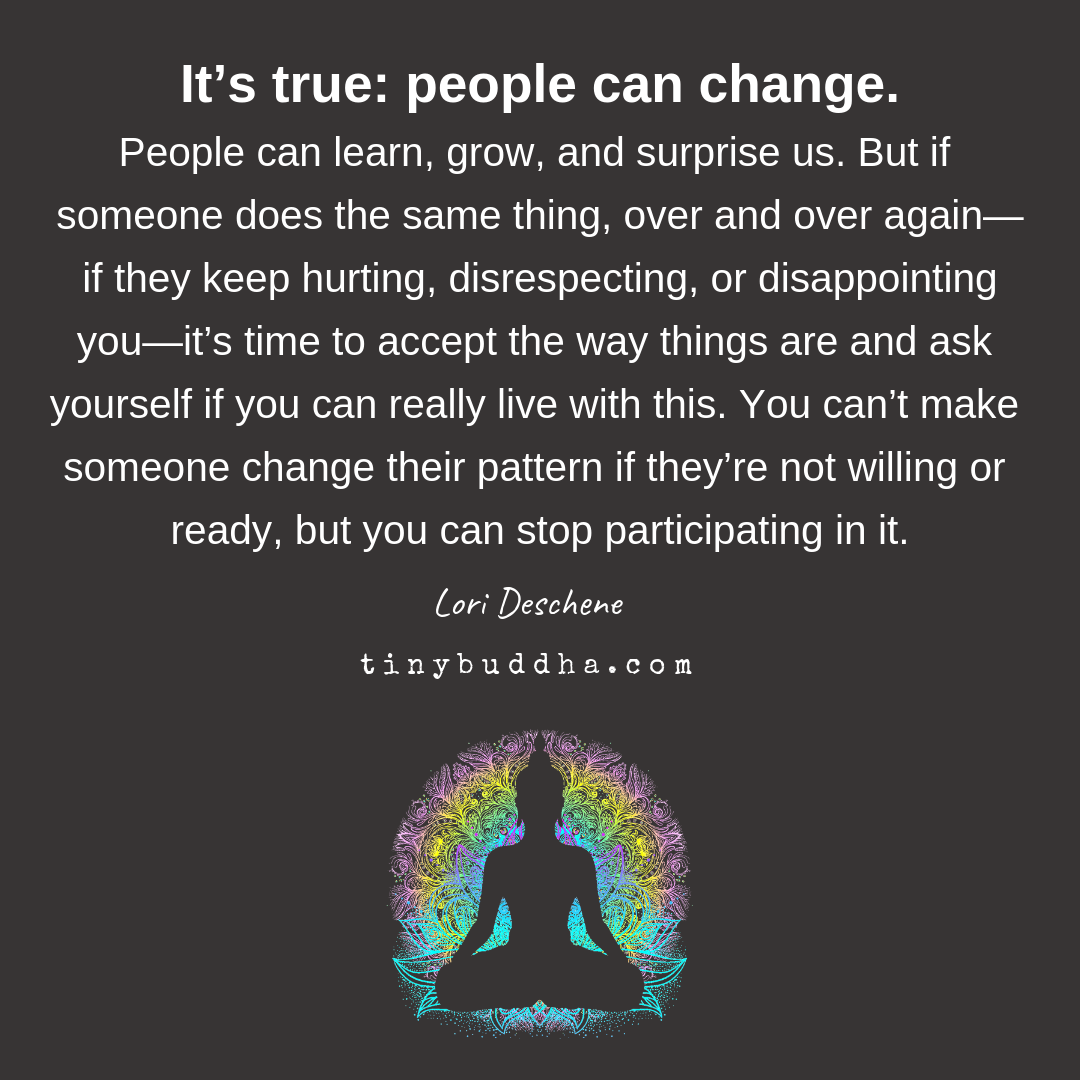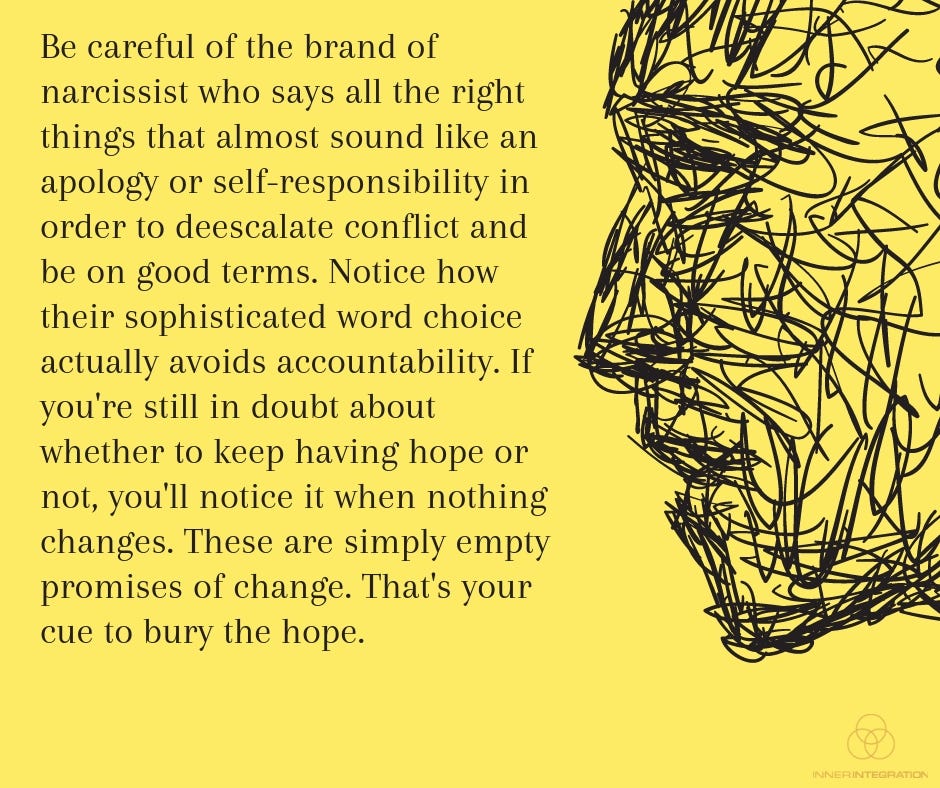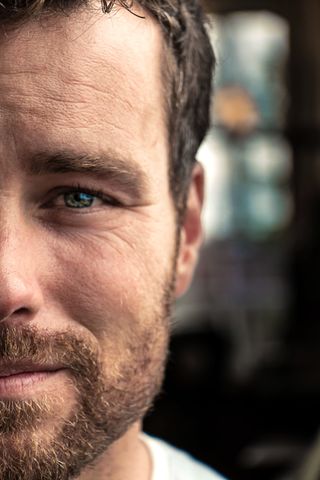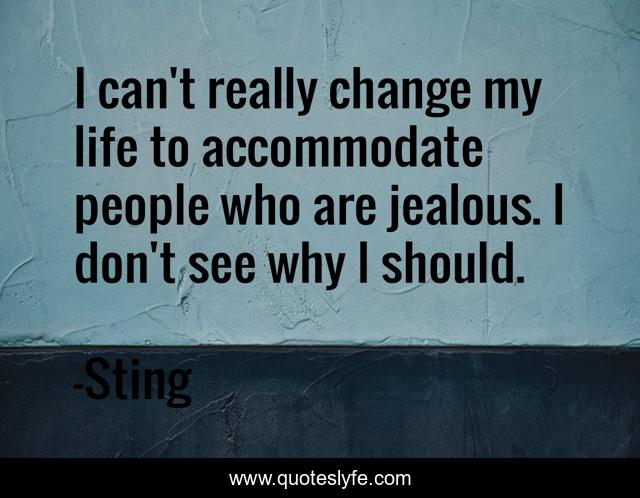do people really change
Can people change or just lie? How experts answer the question, "Can people change? " By: Updated March 08, 2021 Medically Reviewed By: Can people change? It's the first thing they say after breaking your heart: They can change if you just give them a second chance. And while you really want to believe them, you're wondering, "can people change or just lie?" The simple answer is that people can change, but it doesn't necessarily mean they do. Change requires an opening to the experience and a little hard work. Source: pexels.com What impact does the ability to change? Making changes in life is not easy. It is much easier to follow your behavior naturally. But that doesn't mean you or others can't change. It's possible for anyone to change if he really works. There are some things that impact a person's ability and desire to make changes in life. They include genetics, motivation and personality. Let's discuss these in more detail below. Can people really change? There are countless stories of people who have overcome substance abuse to find a better life, drawn into a relationship and returned to build it healthier than ever, or lived completely selfish lives and then made their lives all over others. People tend to respond to others according to their own senses of consciousness and acquitability. These stories show that people can change and move towards a more positive direction. In fact, the research that looked at 200 studies found that with proper treatment, people are even able to change their personalities. So the question isn't really whether people can change as much as why some do it but others don't. We will explore that question below. Everyone has areas that can improve in life. People really change when they want. So if you need to make changes in your life, or you're counting on someone else to make changes themselves, it's possible. Can people change biologically? Psychology Today states that much of what we are could be caused by genetics. Although the environment obviously forms the way we think, there are also biological factors that supposedly represent 70% of the differences. That is to say that many psychologists now the genetics of the figure is more important than the environment. Another thought of the same theory suggests that people born with predominant biological factors tend to follow social patterns strongly influenced by their genetic gifts. You may have heard the phrase, "a leopard cannot change his points." In essence, the argument is that the environment cannot force someone to be something contrary to their biology. However, the article in Psychology Today also continued to say that "biologically influenced" should not be confused with "biologically determined", which is the idea that society must accept negative behavior as something immutable. We are not programmed or guided to change the original behavior of a person. Although some people are programmed for specific personality traits, there is still hope that society and the environment can reschedule negative behavior, and break down bad habits, so the spirit of change. Source: unsplash.com Breaking Down Personality TraitsResearchers have broken the differences in people's personalities into five main features that are often referred to as the five great personality traits. The five features include openness to experience, extroversion, neuroticism, consciousness and concordability. These features help explain how people think and behave. When people are qualified in personality tests, they are qualified as superior or lower than most people for each trait. Personality tests indicate that most traits tend to remain fairly consistent throughout adulthood. In today's new research in psychology, researchers have introduced a six-factor model known as HEXACO that adds personality traits of honesty and humility to the original five traits. The Role of Personality Disorders But what about when you are not experiencing, and negative behavior goes beyond the experimental and youthful stage? There is a possibility that if the change is related to an important personality disorder, such as APD (antisocial) or NPD (narcissistic), then real change is only possible under professional supervision. (CBT) involves reprogramming negative behavior, but even as powerful as treatment and medication may be, limiting conditions like APD and NPD can be very difficult. When they succeed, they can change their personality and friends and family members are gratically surprised how people really change. It's important to ask what do you expect to change? If you are the one trying to change, or the partner of someone trying to change, do you want to change the nature of the person? Important personality disorders apart, research on how and why people change has been promising. According to a study conducted by the , the subjects were tested to see if and to what extent they could "grow a new personality" for 16 weeks. The results were moderate. But one thing that was noticed was that people who showed the greatest promise also wanted to change some aspect about themselves in their "real life" or true personality. Disorders of mental health and personality changeConventional personality disorder is a condition in which people have a drastic personality change. According to Psychology Today, the border personality is a chronic mental illness with severe mood and emotional instability. psychiatrists describe this disease as being on the border of psychosis and neurosis. Symptoms may include injuries on their own by cutting and suicide attempts. Due to the severity of personality change, it may seem that there is no hope for people with border personality disorder. The disorder can often be successfully treated with therapy and medication. With the right treatment for border personality disorder, people really change. Border personality causes serious emotional instability that can be difficult for friends and family to treat. Support groups for friends and family members are often successful in helping people feel not so alone in treating the disorder. Feed disorders are another condition that causes a personality change. A food disorder is not classified as a personality disorder. Psychology Today describes eating disorders as psychological diseases that are characterized by unhealthy, obsessive or disorderly eating habits. Food disorders cause emotional instability because it alters the normal digestive cycle that feeds all other body systems. It is difficult to treat eating disorders, but many people succeed after attending therapy and support groups. Bipolar disorder is a mental health disorder where someone's personality can change apparently in a heartbeat. Psychology Today reports that some people still refer to bipolar disorder as manic depression. Symptoms of bipolar disorder involve drastic mood changes that alternate between severe emotional instability and depression. During mania fighting, a person living with bipolar disorder experiences emotional instability that includes a mixture of irritability, anger, depression and sometimes euphoria. Therapists diagnose bipolar disorder using tests; therapy and/or medications are indicated for people who are diagnosed with bipolar disorder. A diagnosis of bipolar disorder can be classified as bipolar 1 or bipolar 2. Psychology Today describes Bipolar 1 as people who have had at least one manic episode that causes an extreme personality change sufficient to require hospital care. Bipolar 1 may include an important depressive episode, but not always. People who have Bipolar 2 usually have large depressive episodes that last at least two weeks along with hypomania. Hypomania is a mild or moderate type of mania that normally does not require hospitalization. The duration of the time the moods alternate last and the frequency with which they occur varies substantially from person to person. When the mood fluctuation is frequent and occurs at least four times a year, it is known as rapid cycling. Fast cycling is very difficult to handle due to extreme emotional instability and unpredictability. Bipolar disorder can be accurately diagnosed with psychological tests: therapy and medication are the preferred treatment courses where bipolar disorder is indicated. Symptoms of bipolar disorder are difficult for the person who lives with her and her families to manage in the long term, making it seem impossible for the person to change. In fact, with the proper treatment protocol for bipolar disorder, people really change. People have to want to change This gives credit to the argument that if you want to change, not only in words but on a personal level, you will learn a new behavior in a way that helps you achieve your goals that should include emotional stability. People really change when they want and invest in the process. If a person's behavior has not changed even though he agrees to do so for several periods of time, the chances of changing are probably not good. Source: unsplash.com If a person's goals are altered, his thoughts change, his behavior changes. If the goals of the person remain the same, and they want the same basic needs as their current lifestyle allows, they are unlikely to ever change. Not that they can't change, the reason is they're not willing to change, so they don't change. They don't find any advantage in changing. If promises work to calm a suspicious partner, there is no reason to change their thinking or behavior processes. All they have to do is make more promises, and in their subconscious, they probably know. If, however, they see the need to change to preserve what they have precious, they will alter their goals and will be willing to alter their lifestyle. They will change their thoughts, which lead to actions and seek a new way of dealing with daily tensions. At some point, they may find situations or even people in life that lead them back to their destructive habit, either drug addiction, violent temperament or deception. Can people change? Yeah. Getting professional help indicates a genuine desire to change, beyond empty promises. A professional therapist approaches the situation with a clear objective: to change the patterns of thought and help the patient learn productive ways to cope with stress. This is what the online advice, like the services offered by , can help you with. This puts you in contact with experts trained in cognitive behavioral therapy and other proven methods. Better Help can offer you a different advantage to traditional therapy in person, working with your available hours and giving you the privacy of your own home for sessions-or where you feel comfortable. The best way to change permanently is to get someone's help. You can read the reviews of BetterHelp's counselors below from people who experience similar problems. "Dr. Tassava is the best advisor I've ever had. It offers me real life techniques and tools to manage my anxiety and stress. He has never judged me for any of my problems and has honestly supported me through the most difficult time of my life. In recent months, with its support and guidance, I have been able to change my thinking, react and how I manage greater anxiety and stress. I'm very grateful for her. Not only has my life changed for the better... honestly, it has saved my life." "Mary Smith is very thoughtful and a great listener. I can say you have a lot of experience dealing with many situations and people, which gives me comfort. She always stays on the road with my concerns and goals, and always offers relevant suggestions and tools to help me conquer topics. I definitely recommend Mary Smith to anyone who feels trapped in her toxic forms formed by difficult past experiences, but you want to overcome them. I think Mary has the skills to help someone who really wants to change for the better."Conclusion So, the simple answer to the question "Can people change?" is yes - . Take the first step today. FAQ (FAQs)Are people able to change? Contrary to the popular belief that people cannot change - people are able to change. The most important factors to consider when it comes to making changes is the will of the person to make a change. People change when they are left without another option or to keep up with changing and changing goals. It is important to understand that what is needed for a person to change will depend on many factors and can be a hard work. The probability of someone making a lasting change can be impacted by their level of consciousness and concordability. These are two of the five great personality traits that can impact a person's ability to see areas that need to change, such as bad habits, and move on to make it happen. Can we really change? According to medical and mental health experts, people really have the ability to change. With appropriate treatment, guidance and therapy, people can learn to undo negative thinking patterns that result in negative behaviors and results in their lives. Is it possible to change you? Research has shown that it is possible to improve negative personality traits with therapeutic intervention and treatment. Learning to change implies learning new strategies and behaviors that lead to more productive thinking patterns. Most people need professional guidance and support to change. This is not to say that people cannot change. However, the probability of lasting change is more likely with professional support Can toxic people change? When toxic people are willing to accept their negative behavior and are also willing to learn new strategies of productive thinking, behaviors and ways of coping, they may change. People have to be willing to accept that their negative personality traits exist to change them. Talking with a licensed therapy provider can help you accept and change your negative personality traits more easily. Can a person change their nature? Yeah, somebody might change their nature. Learning to change your nature implies the will to look at the problems and problems you are having in its entirety. This means you have to be willing to recognize both positive and negative aspects of yourself. Once you have a full understanding of who has been as a person so far, then you can work with a licensed therapy professional to design the next phase of your life. How do I change everything about me? Making positive changes to improve your thinking patterns, emotional reactions and external appearance requires a commitment to get out of the ups and downs of the whole process. Changing small things at once is the best way to make lasting changes that stay with you for the rest of your life. Talk to an authorised therapist about how to make incremental changes in your daily habits can help you change your life. Can a person change during the night? If someone experiences a highly traumatic event, this can make them seem to change completely during the night. In many cases, the shock of a traumatic event results in mental health changes and disorders such as post-traumatic stress syndrome and anxiety. Instead, if the bets are high enough, people can change for the better the same way. How do you want your being? If you're on the way to learn how to love you, the best thing you can do is to start being honest with yourself. Recognizing the whole of you means accepting both the positive and negative aspects of your personality and reconciling that with your reality. People who struggle to love themselves -- as they are, should seek therapy with an authorized psychologist or therapist. How do you look? Do you like the person you see when you look in the mirror? If you are constantly finding defects in yourself or if you have an over-inflated sense of yourself, these are both problems that can be helped with the therapeutic treatment of a mental health professional. A mental health professional can help you unlearn negative thinking patterns and teach you healthier ways to create a positive image of yourself. With the "right" motivation and under the "right" circumstances, people can change. (What is considered correct or incorrect is relative to the individual.) The most important obstacle to eliminating on your path to self-improvement is your "voluntary" to change. Being willing to change means that you are fully committed to completing the learning process and relearning -- no matter what is necessary. If you are ready to make a change or if you need help to be motivated to set new goals to make the necessary changes in your life -- talk to a licensed therapy professional. For related articles that explore the question, "Can people change?" For more information on how therapy can help people change, visit: If you have any questions about therapy, contact us at . For more information about therapy and BetterHelp, visit: If you need a crisis emergency line, please call: Previous ArticleNext ArticleSearch Topics Learn moreCategory ListRelated Articles You will be connected in seconds.

Can People Really Change? | HuffPost

5 reasons to believe people really can change | by Steve Mitchell | So Much More Better | Medium

Do people really change o... | Quotes & Writings by Mahek | YourQuote

Do People Really Change? | The Friendly Messed up blogger

Can People Really Change? - LDS Blogs

It's True, People Can Change, But... - Tiny Buddha
I want opinions. Do people really change, yes or no?

People don't change, situations change and make you see more of who people really are.... | People dont change, Words, Quotes
summer🖤 on Twitter: "do people ever really change ? #thesunandherflowers… "

Maybe sometimes people did not actually change. Maybe you just never knew who they really were. Picture Quotes. | People change quotes, Words quotes, Change quotes

Do people change? - Quora
Do you really believe people can change? - Core Radiate

When To Bury The Hope That The Narcissist Will Change | by Inner Integration | Medium

Can People Really Change? :: Dr. Linda Sapadin
Gosho Aoyama Quote: "People can really change. When they're far away from each other, their hearts will change. It's so cruel that the only t..." (7 wallpapers) - Quotefancy

Change Personality | Live Life Witho LLP LLPLLP lol.

Can People Really Change? – Mt. Zion Wesleyan Church

Do People Really Change? | E-ChannelNews.com

People can really change. When they're far away from each other, their - IdleHearts

EP 5: Can people really change? | Bill Gates and Rashida Jones Ask Big Questions | Podcasts on Audible | Audible.com

C4: Ignite Your Catholic Faith - Can People Really Change? - YouTube

Can People Really Change? - A New Heart Life
How Do You Know If Someone Will Really Change? — Ryan C. Bailey & Associates

Do People Really Change? | Psychology Today
The 55 Best People Change Quotes | Planet of Success

Sting - I can't really change my life to accommodate...

Can People Really Change? | FamilyLife®

How Do People Actually… Change? ‹ Literary Hub

People really do change. Don't let anyone tell you differently. That the - IdleHearts
We can never really change someone; people must change themselves | Picture Quotes
Can People Really Change? – DVLP Solutions

Quotes about People Never Change (80 quotes)

Can People Really Change? - YouTube

Do people really change over time or does time just give you more opportunity to see who they really are? | PEKYJ TRAVEL BLOG SINGAPORE

Maybe sometimes people did not actually change. Maybe you just never knew who they really were... #truth | People change quotes, Words quotes, Change quotes
Sting Quote: "I can't really change my life to accommodate people who are jealous. I don't see why I should." (7 wallpapers) - Quotefancy

Do people really change d... | Quotes & Writings by Shakti Gupta | YourQuote

I can't really change my life to accommodate people who are jealous. I... Quote by Sting - QuotesLyfe

People don't change, they reveal who they really are | Quotelia
Anamorphosis and Isolate — "People can really change. When they're far away...
Posting Komentar untuk "do people really change"